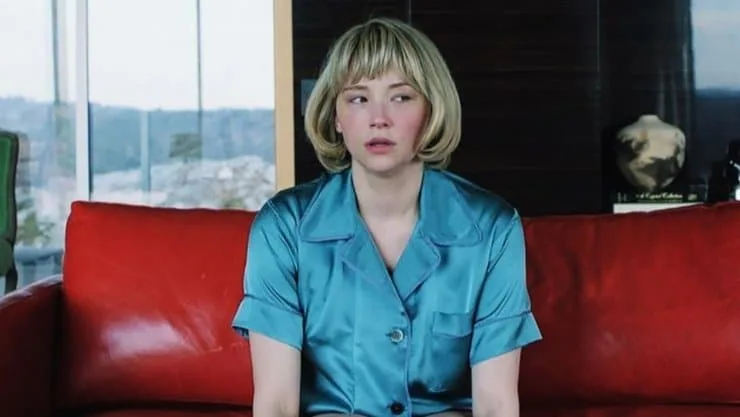
Magpies are notorious for their willingness to eat almost anything. In fact, it is due to this habit that they lend their Latin name, picave, to the psychological condition known as pica. Listed in the DSM-V as an eating disorder wherein one persistently eats non-nutritive, non-food substances, pica is basically the formal diagnosis for someone who eats things that are not meant to be eaten. The exact cause of pica is still unknown, but it does have a higher incidence in pregnant women. A commonly held theory to explain its cause is that it is related to a nutritional deficiency. This explanation has an appealing common-sense logic to it: one can draw a pretty clear line from cause to effect. Your body is crying out for some kind of vitamin or mineral that the baby needs; yet somewhere, the message gets scrambled, resulting in an urge to consume non-nutritive items. Pica is also linked to a variety of stressors, and is often associated with a need for comfort. Regardless of its cause, it’s a disease that packs a seriously visceral impact; there is something so unsettling about the trespass of foreign bodies into yours.
In Swallow, writer-director Carlo Mirabella-Davis explores this fascinating and unnerving affliction with a humanity that belies its billing as a psychological thriller. It would probably be better described as a psychological drama, as it lacks the lurking dangers or imminent threats that hallmark thrillers. Instead, the film is permeated by a sense of unease as you get to know Hunter (Haley Bennett) and come to fully appreciate the crushing weight of her predicament.

Hunter is a young bride-to-be, and her fiancé, Richie Conrad (Austin Stowell), a moneyed businessman from a wealthy family. They’ve just moved into a marvellous new home, purchased by Richie’s parents, and are all set to start a wonderful life together. At a sumptuous feast that appears to double as a board meeting, Richie’s father, the CEO of a private enterprise, makes him the “youngest managing director in the history of the company”. Hunter looks on lovingly as Richie accepts the promotion and assures the assembled titans that he “couldn’t have done any of this without [his] beautiful bride.” Mirabella-Davis, however, tells a different story: we watch as Hunter aimlessly tidies their riverside mansion, cooks meals, and whiles away the hours in her gilded prison. She is a homemaker, not a partner. And no matter how many times she tries to convince herself and the world at large that she’s happy, it feels hollow. Hunter has made a Faustian bargain which she sums up quite well in a painful conversation with her mother-in-law, Katherine: “I’m just real grateful for Richie and you guys for providing me some solid ground to stand on”. The terms of this bargain, however, become unacceptable after she finds out that she’s pregnant with “the future CEO” of the company. At the celebratory dinner, Kevin, her father-in-law, egregiously silences her, and no one seems to notice or care. So, in a moment of defiance, she crunches through the ice in her glass, stopping the conversation cold. It’s liberating, but this power of self-determination is fleeting, so she starts to eat other things, too.
The more her freedom diminishes, the more her appetite expands, and the drama of Swallow slowly builds as Hunter’s hunger grows. Again, Swallow is not, strictly speaking, a thriller, but her descent is a stressful one. Her in-laws are terrible. David Rasche imbues Kevin Conrad with icy indifference, and his wife Katherine, played chillingly by Elizabeth Marvel, oozes disdain and scepticism. Hunter’s every interaction with them is horrifying in their blasé attitude of disrespect. Her moments of pica, too, will make you squirm. Excellent sound design and Foley amp up the sounds of glass or metal against enamel. And throughout, Haley Bennett brings a wide-eyed naivety and earnest loneliness to Hunter. She is so strikingly out of her depth, struggling with her new family, and clearly in denial regarding the gravity of her situation.
Because the tension swells and fades across discrete scenes of Hunter’s pica, loneliness, and belittling, the film can feel a little directionless in the first act. Rather than ramping up, it layers the different tableaux, as Hunter suffers a thousand little indignities and searches for ways to reclaim her autonomy, until it reaches a fever pitch. Once Hunter’s pica does come to the surface, the film finds more focus as Hunter’s struggle is increasingly defined (for both her and the viewer) as in opposition to the Conrad family. Additionally, Hunter begins seeing a psychologist, a move that allows Mirabella-Davis to begin parcelling out a backstory that helps to flesh out Hunter’s motivations and clarify a much more powerful narrative arc for her. When these disparate elements finally coalesce, they give way to a taut, yet moving, third act. While its pacing and gentle approach to the subject matter may put off viewers searching for a more exaggerated horror experience, Swallow is a smart, quiet drama that offers a haunting meditation on isolation, autonomy, and fate, presented through the lens of the very real body horror of pica.
